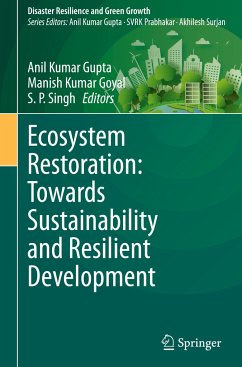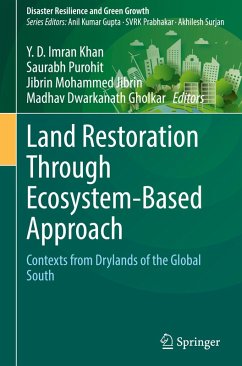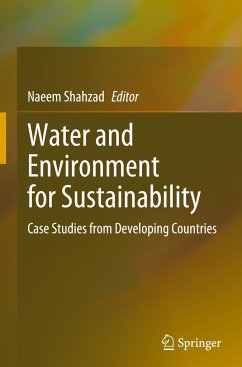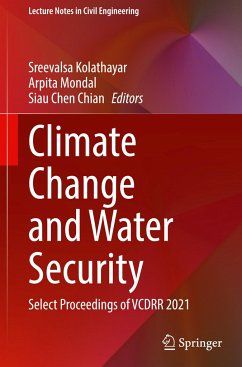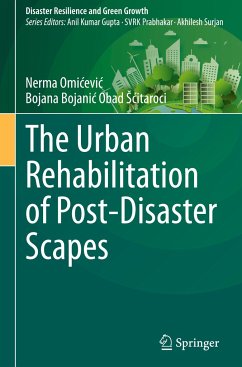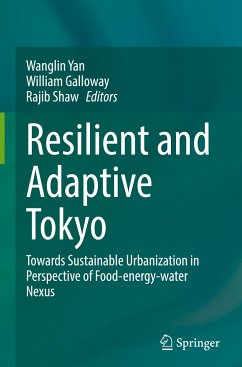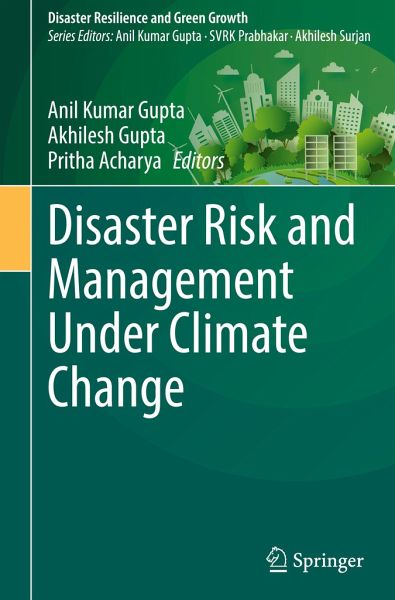
Disaster Risk and Management Under Climate Change

PAYBACK Punkte
68 °P sammeln!
This contributed volume is focused on SDG 3, 6, 7 ,9, 11, 15, and it covers extensive knowledge on damage and loss contexts of climate change in a developing country. India's vast landscape with its diversity of eco-geo-physiography, socio-cultural, and developmental settings, coupled with climate change and anthropogenic factors, makes it one of the most disaster-prone countries of the world and, thus, representing almost all the disasters and extreme events associated with climate change, variability, and weather phenomenon.Besides common hazards,such as heavy rainfall, floods, drought, cycl...
This contributed volume is focused on SDG 3, 6, 7 ,9, 11, 15, and it covers extensive knowledge on damage and loss contexts of climate change in a developing country. India's vast landscape with its diversity of eco-geo-physiography, socio-cultural, and developmental settings, coupled with climate change and anthropogenic factors, makes it one of the most disaster-prone countries of the world and, thus, representing almost all the disasters and extreme events associated with climate change, variability, and weather phenomenon.
Besides common hazards,such as heavy rainfall, floods, drought, cyclone and heat wave, secondary and composite disasters like forest fires and disease epidemics are also covered with case studies and examples. Cross-cutting aspects like infrastructure resilience, gender and social equity concerns, legal and assessment tools, and futuristic vision have been covered well in the book. Disaster risk reduction, preparedness, and resilienceas centralthemes of adaptation to climate change are presented through policy discussions, tools, and strategic analysis of past and recent lessons.
This book is of common interest to a wider range of readers across policyplanning, academia, research, and professional practitioners having interest in adaptation, resilience building and sustainability in developing countries of the world. Though it is primarily a reference book, it can also serve as a textbook for university courses and professional trainings in climate change adaptation, disaster management, sustainability and strategic management studies.
Besides common hazards,such as heavy rainfall, floods, drought, cyclone and heat wave, secondary and composite disasters like forest fires and disease epidemics are also covered with case studies and examples. Cross-cutting aspects like infrastructure resilience, gender and social equity concerns, legal and assessment tools, and futuristic vision have been covered well in the book. Disaster risk reduction, preparedness, and resilienceas centralthemes of adaptation to climate change are presented through policy discussions, tools, and strategic analysis of past and recent lessons.
This book is of common interest to a wider range of readers across policyplanning, academia, research, and professional practitioners having interest in adaptation, resilience building and sustainability in developing countries of the world. Though it is primarily a reference book, it can also serve as a textbook for university courses and professional trainings in climate change adaptation, disaster management, sustainability and strategic management studies.







